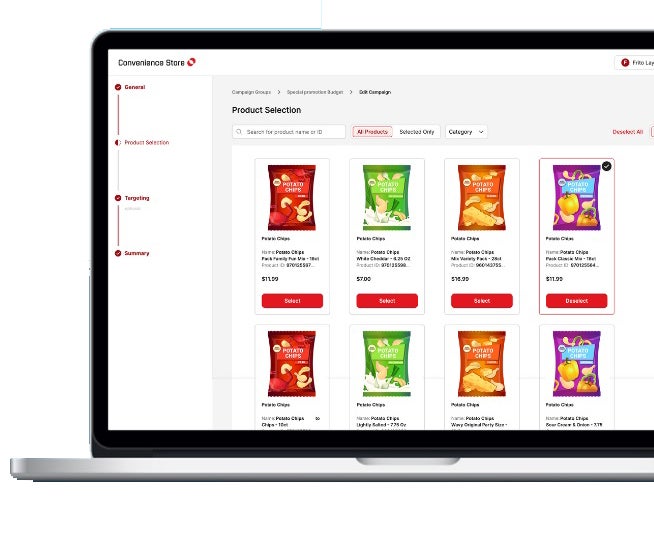PubMatic is entering the commerce media fray.
On Tuesday, the SSP launched a self-service ad platform called Convert built for commerce media – retail media networks, shopper marketing, call it what you may. Coles 360, which is the data-driven ad business of Coles supermarkets, as well as Lyft Media, dentsu, IPG Mediabrands, MiQ and Wallapop are among the launch partners.
PubMatic surveyed retail and ecommerce companies and its advertising partners and saw an opportunity to earn its place in what Peter Barry, VP of addressability and commerce media, termed a “confused and cluttered” space.
Some retail chains have ad businesses that easily clear 20 mar tech and ad tech vendors.
“There’s a certain amount of fatigue around how many platforms [retailers] can log in to, how many partners they can work with,” Barry said.
On the buy side, the commerce complexity comes in the form of the countless retail platforms, each with its own hybrid mix of walled garden and open programmatic data policies.
Head to head
Retail media is a cluttered space.
So why add another vendor?
Barry frames PubMatic’s offering as a kind of header bidding solution, but geared toward the sponsored listings ads that make up most of retail media.
Consider a regional grocery chain that has exclusive partnerships with one or two ad tech vendors, which operate search and sponsored listings for the site. That’s a common setup.
By defaulting to so few partners, that retailer narrows its demand. Searches like “chips” and “soda” may always have brands in stock that compete for search terms. But some customer searches may not have active buyers. The grocer would default to organic listings.
It’s not the end of the world, but it is a missed revenue opportunity for the site.
Web publishers embraced header bidding because, despite calls for ad tech consolidation and outright removal, yield managers like keeping their options open to different pathways for demand. PubMatic’s bet is that many retail sites, online marketplace sites and shopping apps will embrace additional tech partners that bring incremental new business.
Opening up
The reason PubMatic created a dedicated retail platform rather than slot Convert into the existing cross-platform product comes down to the nuances of sponsored listings.
Sponsored listings represent a good three-fifths of commerce media right now, Barry said, and are sold on a cost-per-click model. That’s different from the CPM-based sales of other offerings, so it’s difficult to bundle, he said. “You have to build specifically for it.”
And PubMatic is simplifying the retail media network landscape in one clean swoop by removing retailers that sell on a walled garden model.
The Walmart DSP built on The Trade Desk, for instance, strips campaign IDs from reporting and only self-reports conversions (i.e., it’s a walled garden).
For retailers that take a “small hedged garden” route but still remove campaign IDs, Barry said PubMatic isn’t buying in.
Not that PubMatic wouldn’t be in touch, he said, about the opportunity to open up their data and supply for the wider programmatic industry.
The vast majority of PubMatic’s 1,700-plus publisher clients aren’t in retail or ecommerce, so they wouldn’t be actively involved in the product. But they still benefit from retail media growth, Barry said.
For instance, Kroger Precision Marketing (KPM), the grocer’s data and ad biz, uses PubMatic for audience extension campaigns, which he said is the SSP’s fastest-growing channel across all supply in commerce media.
The programmatic audience extensions also open up a chance for retailers to earn revenue from nonendemic advertisers.
A vitamin and supplement company might target people who buy organic groceries and expensive skincare products, for instance. Life insurance companies are looking for diaper purchasers, sorry to say.
“As the space becomes more competitive and their competitors start offering certain data sets that give them an advantage,” Barry said, “retailers that were reticent before will probably come to the table.”










